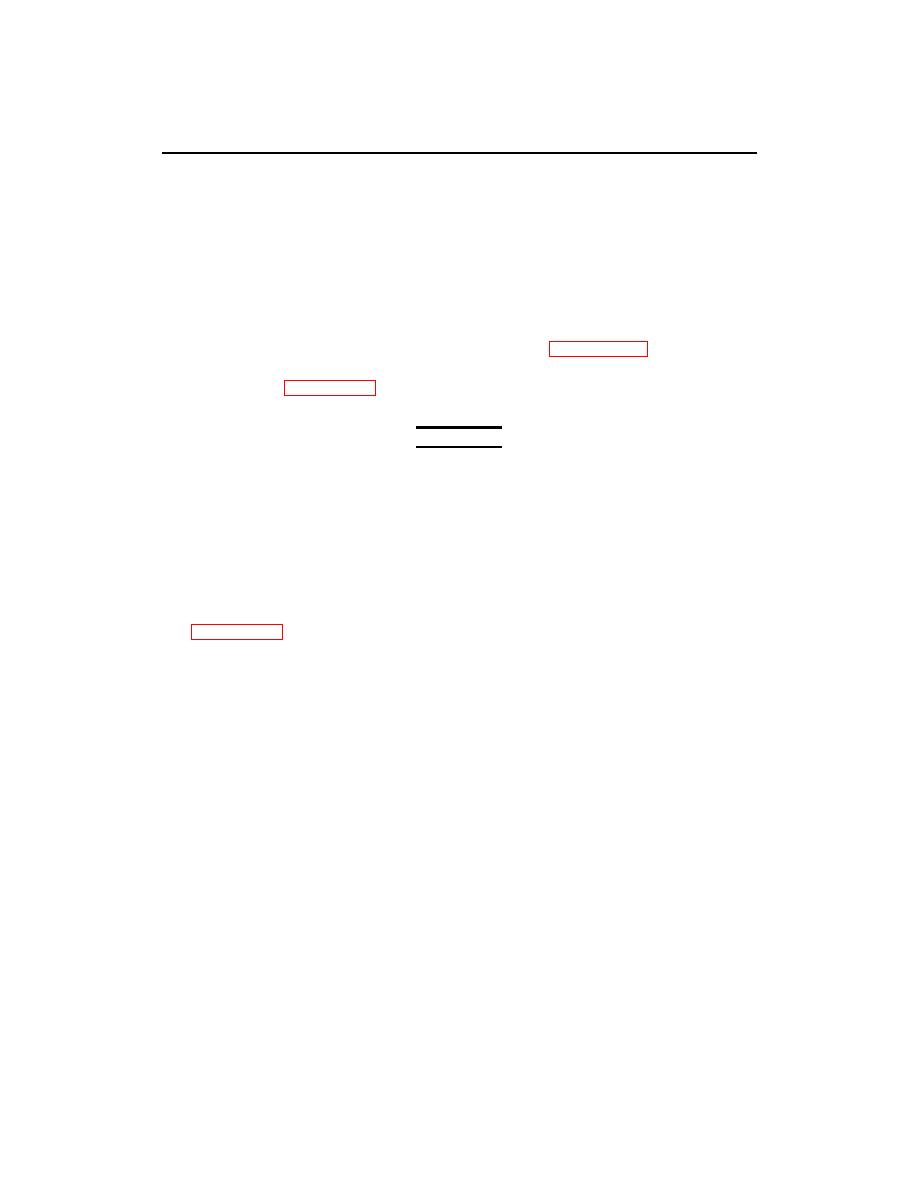
TM 5-1940-322-10
0037 00
OPERATION UNDER UNUSUAL CONDITIONS (Contd)
OPERATION IN EXTREME HEAT OR DRY CONDITIONS (Contd)
5. If operating BEB under load and at high speeds for extended period, observe
temperature gauges frequently and idle engines down slowly when stopping. If
temperature exceeds normal operating range, idle engines with transmissions
in FORWARD until engine temperature is in normal range.
6. Keep engine coolant at recommended level. Refer to WP 0049 00.
7. Do not fill fuel tank above full mark on dipstick to allow room for expansion of
fuel. Refer to WP 0049 00.
8. View instrument panel often for irregularities.
WARNING
If NBC exposure is suspected, NBC contaminated filters
must be handled and disposed of only by authorized and
trained personnel. The unit commander or senior officer in
charge of maintenance personnel must ensure that
prescribed protective clothing is used, and prescribed
safety measures and decontamination procedures (FM 3-5)
are followed. The local unit SOP is responsible for final
disposal of contaminated air filters. Failure to do this
may cause severe injury to personnel.
9. Inspect air cleaners for excess dust. Clean or replace as necessary. Refer to
OPERATION IN SALT WATER
1.
Always keep hatch covers closed.
2.
Keep engine and hydrojet compartments as dry as possible.
3.
If available, wash down engines, engine accessories, and bilge with fresh water.
4.
Wipe exteriors of engines and engine accessories dry after each operation.
5.
Check hull frequently for signs of corrosion. Corrosion is likely to occur at
exhaust vents, drain openings, and areas subject to wear. Signs of corrosion and
bare spots on painted surfaces should be repaired as soon as possible.
6. Frequently inspect lights, bilge pumps, fire extinguishers, electrical connections,
and lines for signs of corrosion or salt accumulation. Clean items as needed
with fresh water and wipe dry.
0037 00-4


